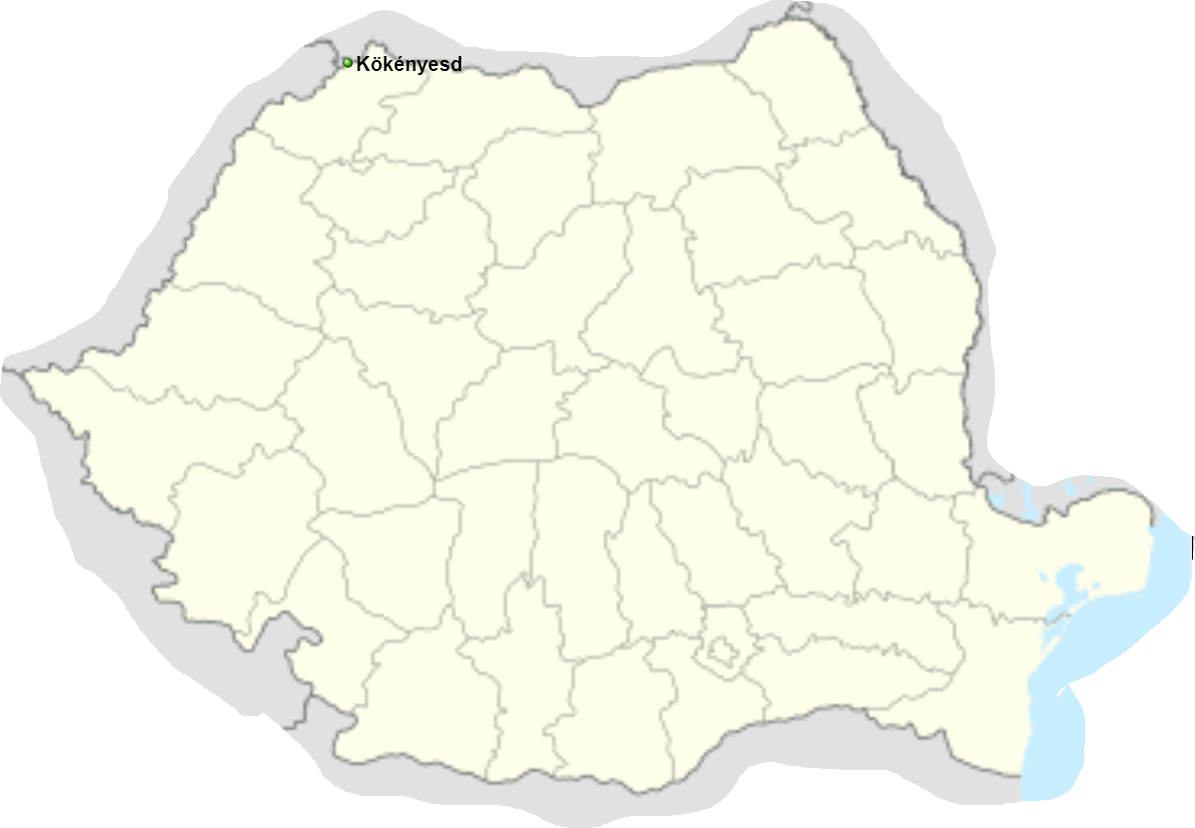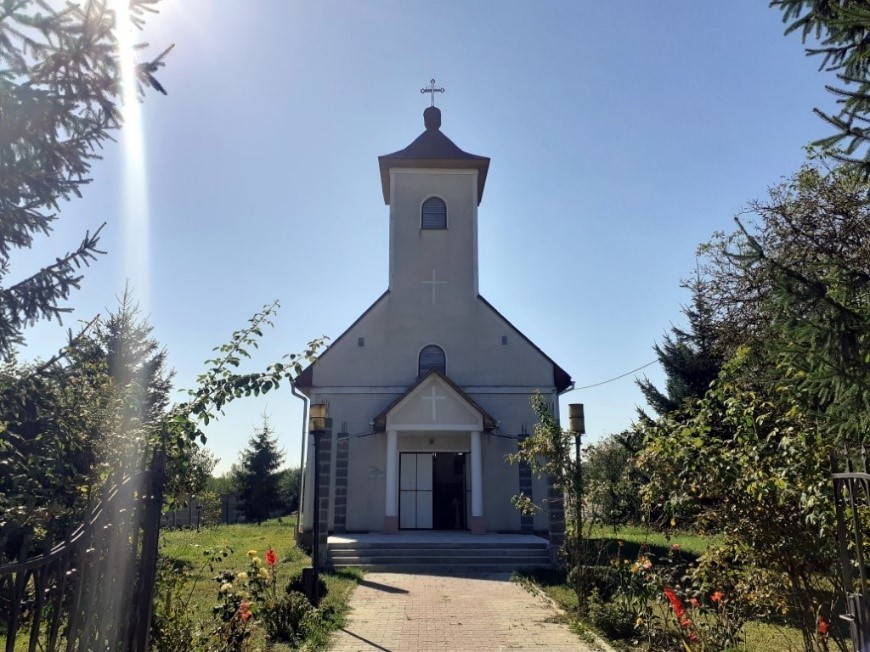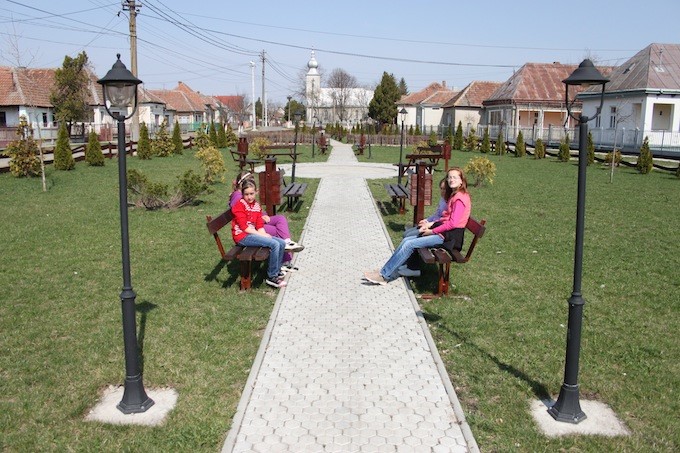Porumbești (in Hungarian Kökényesd) is the village of residence of the commune of the same name in Satu Mare County, Transylvania, Romania.A settlement located northeast of Satu Mare. Porumbești and its surroundings were already inhabited in prehistoric times. Artifacts from the Bronze Age were discovered on its territory. A settlement from the Árpád era. Its name was first mentioned in 1274 in the Váradi Regestrum under the terra names Kukynus, Kukenes, Kukunusd, Kukyn, in 1319 as Kukenes, villa Kukynesd, Kukenesd, Kukunyesd, in 1471 as Kekenyesd, in 1478 as Kewkenyesd, Kewkenyesd.During the Árpád era, it belonged to the estates of the Káta family, which was given to Tamás, son of Gábor of the Káta family, as a royal gift. During the Polish invasion of 1657, the population decreased. The lowest point of population decline occurs before and after the Tatar invasion of 1717. To compensate for the declining population, Ruthenian families and all settled in the village, they are the ancestors of the Greek-Catholic inhabitants of the settlement. In 1770, 55 families lived in the village. On a map made in 1865, there were already 131 houses here.
In 1910, out of 1,405 inhabitants, 1,399 were Hungarians. Of these, 349 were Roman Catholic, 856 Greek Catholic and 138 Israeli.
According to the 2011 census, 2,068 Hungarians, 25 Romanians and 418 Gypsies are native speakers out of 2,516 inhabitants (5 unknown).




